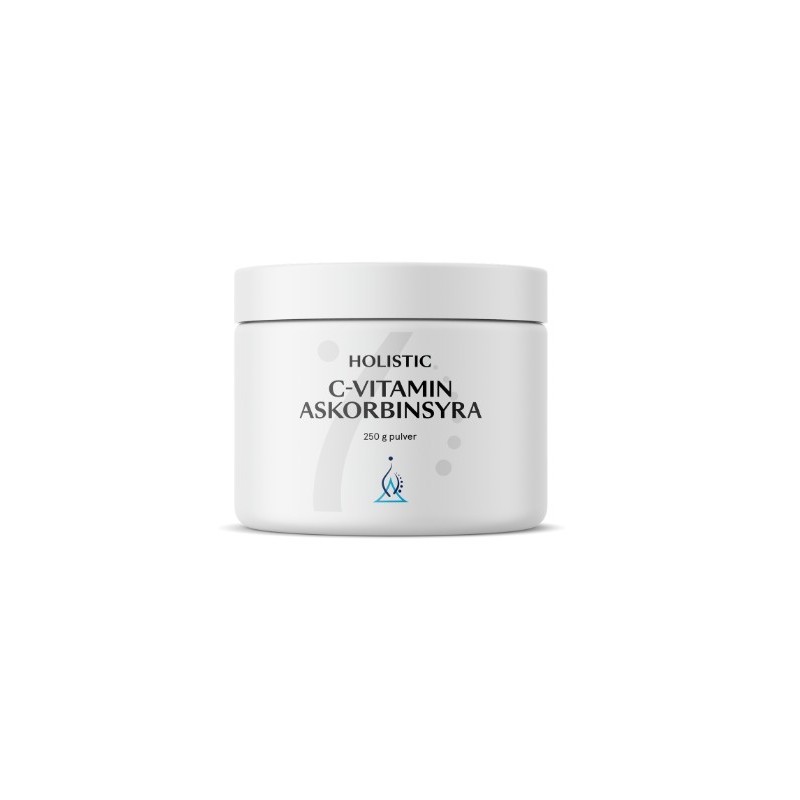- New



Ascorbic acid is pure vitamin C in the same natural form found in fruits and berries. Completely free from additives and you can easily dose with a spice measure.
 Security policy
Security policy
(edit with the Customer Reassurance module)
 Delivery policy
Delivery policy
(edit with the Customer Reassurance module)
 Return policy
Return policy
(edit with the Customer Reassurance module)
Vitamin C, or ascorbic acid as it is called when synthesized by plants, is a water-soluble vitamin that humans cannot produce themselves and therefore needs to be supplied daily through diet or dietary supplements. Vitamin C is also sensitive to heat and oxygen, which means that it is easily destroyed when heated. Supplementing with vitamin C can therefore be a good complement if you know that you do not get enough vitamin C through your diet.
All mammals except guinea pigs, bats, a few monkeys and humans can produce vitamin C in the liver in large doses of glucose. However, we humans lack an enzyme in the liver to be able to produce vitamin C. Under stress, other mammals produce many thousands of milligrams of vitamin C per day per 70 kg of body weight.
Important functions of vitamin C
Vitamin C is an antioxidant that contributes to the normal function of the immune system and to protecting cells against oxidative stress caused by free radicals. Free radicals are reactive oxygen species that are formed as a by-product when the body burns oxygen. The amount of free radicals increases when the body is exposed to stress, for example during illness, smoking or during hard physical work, which can cause damage to the body's cells, proteins and genetic material. The antioxidant vitamin C protects the body by neutralising reactive oxygen species.
Vitamin C also contributes to normal collagen formation, which is important for the normal function of blood vessels, bones, cartilage, skin, gums and teeth. Collagen builds skin, hair, nails and cartilage, among other things, and is the body's most common protein. Collagen is naturally found throughout the body but decreases as we age. Vitamin C also contributes to reducing tiredness and fatigue, to normal psychological function, normal energy metabolism and to the normal function of the nervous system. Mild vitamin C deficiency can lead to fatigue, bleeding gums, nosebleeds and impaired wound healing, while severe vitamin deficiency can lead to scurvy.